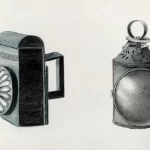Common Myths About Patents Debunked: Separating Fact from Fiction
- August 9, 2023
- By Sarita Thomas
- Read 4 minutes
Uncover the truth about patent protection as we debunk common myths in this evidence-backed article. Maxinov separates fact from fiction, empowering innovators with accurate information.
Patents are a cornerstone of intellectual property protection, providing inventors and innovators with exclusive rights to their inventions. However, the world of patents is riddled with myths and misconceptions that can hinder progress and mislead entrepreneurs. In this article, we aim to debunk common myths about patents using evidence-backed information to provide a clearer understanding of patent protection. Maxinov, a leading company specializing in patent search, drafting, intelligence, and analytics, is dedicated to promoting accurate information and fostering a deeper appreciation of patents among innovators and startups.
Myth 1: Patents Are Only for Big Corporations
One of the most pervasive myths is that patents are primarily for large corporations with extensive resources and research capabilities. This misconception often leads small startups and individual inventors to believe that they cannot afford or benefit from patent protection. However, data from the United States Patent and Trademark Office (USPTO) suggests otherwise. From 2000 to 2019, small entities, which include individual inventors and small businesses, accounted for approximately 44% of all utility patents granted in the United States. This evidence indicates that patents are indeed accessible to startups and individual innovators who can effectively use patent protection to safeguard their inventions.
Myth 2: Patents Are Too Expensive and Time-Consuming
Another common misconception is that obtaining a patent is prohibitively expensive and time consuming, making it impractical for startups and small businesses. While it is true that obtaining a patent can be a rigorous process, there are ways to optimize the process and manage costs effectively. According to a study by the American Intellectual Property Law Association (AIPLA), the median cost of obtaining a U.S. patent is substantially lower for small entities compared to large entities. Furthermore, leveraging specialized patent services like Maxinov can streamline the patent search, drafting, and filing process, reducing the time and costs involved.
Myth 3: Filing a Patent Guarantees Market Success
Some entrepreneurs believe that securing a patent automatically guarantees commercial success for their invention. However, obtaining a patent is just one step in the journey of commercializing an innovation. Research conducted by the European Patent Office (EPO) found that while patents can provide inventors with a competitive advantage, they do not guarantee market success. Several other factors, such as market demand, competition, marketing strategies, and business execution, play crucial roles in the success of a product or technology.
Myth 4: Patents Last Forever
There is a common misconception that once a patent is granted, the protection lasts indefinitely. However, patents have a limited lifespan. In most countries, including the United States, patents have a fixed duration of 20 years from the filing date. Once the patent term expires, the protected invention enters the public domain, and anyone can use it freely. It is crucial for inventors to understand this timeline and plan their business strategies accordingly.
Myth 5: Patents Stifle Innovation and Sharing of Ideas
Some critics argue that patents hinder innovation by preventing others from using and building upon patented technologies. They believe that the sharing of ideas is essential for technological progress. While it is true that patents grant exclusivity to inventors for a limited period, they also promote innovation by providing incentives for inventors to disclose their inventions to the public. The patent system encourages knowledge-sharing and dissemination of technical information, as the details of patented inventions are made publicly available. Moreover, inventors can license their patents to others, fostering collaboration and further innovation.
Myth 6: Software and Business Methods Cannot Be Patented
There is a common misunderstanding that software and business methods are not eligible for patent protection. This belief stems from the debate surrounding the patentability of abstract ideas. Contrary to this myth, software and business methods can be patented, provided they meet the requirements of patentability. In the United States, the USPTO has specific guidelines for examining software and business method patents. These guidelines focus on the practical application of the software or method and its technical improvements.
Myth 7: Patent Infringement Lawsuits Are Inevitable
Some inventors fear that obtaining a patent will lead to costly and time-consuming infringement lawsuits. While patent infringement is a concern, it is not the only outcome of patenting. A study by the AIPLA shows that only a small percentage of patents result in litigation, with the majority of patents never being involved in infringement disputes. Proactive patent monitoring, proper licensing strategies, and skilled legal guidance can help inventors navigate potential infringement issues and resolve disputes amicably.
In conclusion, debunking these common myths about patents is essential for promoting innovation and empowering startups and individual inventors. Patents are accessible, valuable, and crucial for safeguarding intellectual property. While the patenting process requires careful consideration and investment, the benefits of protection can far outweigh the associated costs. By understanding the reality of patent protection and dispelling misconceptions, Maxinov aims to encourage innovators to explore the potential of patents and make informed decisions to protect their groundbreaking inventions.
Sarita Thomas
Latest Blogs
Blog Categories
- Intellectual Property (IP) Strategy (84)
- Intellectual Property Asset Management (IPAM) (17)
- IP Monetization (4)
- IP News (7)
- Patent Drafting (2)
- Patent Litigation (6)
- Patent Prosecution (8)
- Patenting (18)









No comment yet, add your voice below!